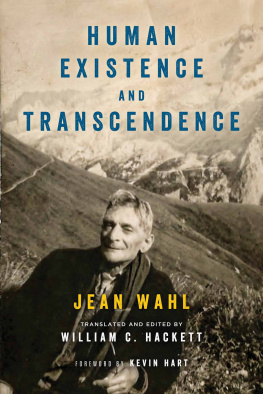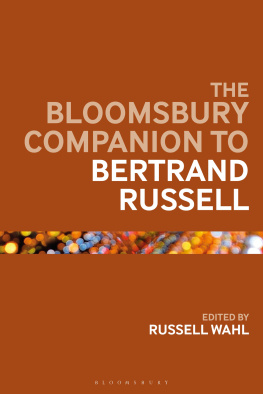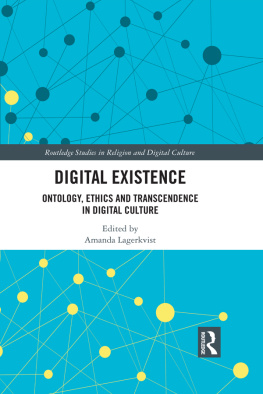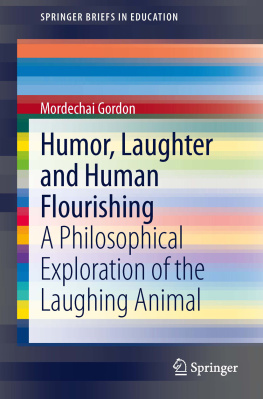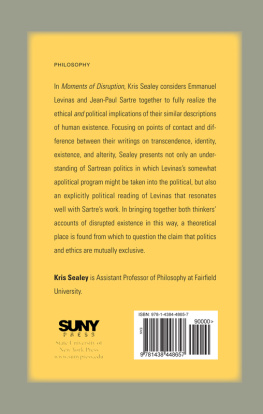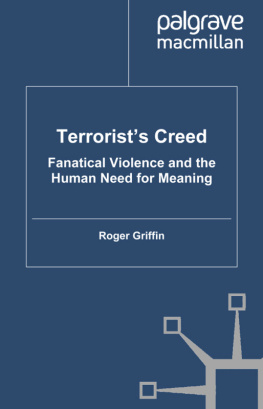Wahl Jean - Human Existence and Transcendence
Here you can read online Wahl Jean - Human Existence and Transcendence full text of the book (entire story) in english for free. Download pdf and epub, get meaning, cover and reviews about this ebook. City: Notre Dame;Indiana, year: 2016, publisher: University of Notre Dame Press, genre: Religion. Description of the work, (preface) as well as reviews are available. Best literature library LitArk.com created for fans of good reading and offers a wide selection of genres:
Romance novel
Science fiction
Adventure
Detective
Science
History
Home and family
Prose
Art
Politics
Computer
Non-fiction
Religion
Business
Children
Humor
Choose a favorite category and find really read worthwhile books. Enjoy immersion in the world of imagination, feel the emotions of the characters or learn something new for yourself, make an fascinating discovery.
- Book:Human Existence and Transcendence
- Author:
- Publisher:University of Notre Dame Press
- Genre:
- Year:2016
- City:Notre Dame;Indiana
- Rating:3 / 5
- Favourites:Add to favourites
- Your mark:
- 60
- 1
- 2
- 3
- 4
- 5
Human Existence and Transcendence: summary, description and annotation
We offer to read an annotation, description, summary or preface (depends on what the author of the book "Human Existence and Transcendence" wrote himself). If you haven't found the necessary information about the book — write in the comments, we will try to find it.
Human Existence and Transcendence — read online for free the complete book (whole text) full work
Below is the text of the book, divided by pages. System saving the place of the last page read, allows you to conveniently read the book "Human Existence and Transcendence" online for free, without having to search again every time where you left off. Put a bookmark, and you can go to the page where you finished reading at any time.
Font size:
Interval:
Bookmark:

HUMAN EXISTENCE AND TRANSCENDENCE
THRESHOLDS IN PHILOSOPHY AND THEOLOGY
Jeffrey Bloechl and Kevin Hart, series editors
Philosophy is provoked and enriched by the claims of faith in a revealed God. Theology is stimulated by its contact with the philosophy that proposes to investigate the full range of human experience. At the threshold where they meet, there inevitably arises a discipline of reciprocal interrogation and the promise of mutual enhancement. The works in this series contribute to that discipline and that promise.
HUMAN EXISTENCE AND TRANSCENDENCE

JEAN WAHL
TRANSLATED AND EDITED BY WILLIAM C. HACKETT WITH JEFFREY HANSON
FOREWORD BY KEVIN HART
University of Notre Dame Press
Notre Dame, Indiana
University of Notre Dame Press
Notre Dame, Indiana 46556
www.undpress.nd.edu
All Rights Reserved
English Language Edition Copyright 2016 by the University of Notre Dame
Translated by William C. Hackett from Jean Wahl, Existence Humaine et Transcendance, published by ditions de la Baconnire Neuchtel,
June 6, 1944. ditions de la Baconnire.
Published in the United States of America
Library of Congress Cataloging-in-Publication Data
Names: Wahl, Jean Andr, 1888-1974, author.
Title: Human existence and transcendence / Jean Wahl ; translated and edited by William C. Hackett, with Jeffrey Hanson ; foreword by Kevin Hart.
Other titles: Existence humaine et transcendence. English
Description: Notre Dame : University of Notre Dame Press, 2016. | Series: Thresholds in philosophy and theology | Includes bibliographical references and index.
Identifiers: LCCN 2016032983 (print) | LCCN 2016034178 (ebook) | ISBN 9780268101060 (hardcover : alk. paper) | ISBN 026810106X (hardcover : alk. paper) | ISBN 9780268101084 (pdf) | ISBN 9780268101091 (epub)
Subjects: LCSH: Transcendence (Philosophy) | Ontology.
Classification: LCC BD362 .W3313 2016 (print) | LCC BD362 (ebook) | DDC 111dc23
LC record available at https://lccn.loc.gov/2016032983
ISBN 9780268101091
This paper meets the requirements of ANSI/NISO Z39.48-1992 (Permanence of Paper).
This e-Book was converted from the original source file by a third-party vendor. Readers who notice any formatting, textual, or readability issues are encouraged to contact the publisher at .
Les circonstances ont empch lauteur de revoir les preuves
du prsent ouvrage. Lditeur sexcuse donc des erreurs qui
pourraient ne pas avoir t corriges et des initiatives quil a
d prendre sans lagrment de lauteur.
Circumstances prevented the author from reviewing the proofs
of the present work. The publisher thereby apologizes for
mistakes that may not have been corrected and initiatives that
had to be undertaken without the agreement of the author.
[Editorial apology affixed to the beginning of the original French text, published June 1944]
CONTENTS
Kevin Hart
William C. Hackett
William C. Hackett
Translated by Jeffrey Hanson
Jean Wahls Human Existence and Transcendence is a very important yet almost completely forgotten work in the history of twentieth-century French philosophy. It arose from a lecture given in 1937 and was expanded into a short book in the troubled years that followed. Apart from its intrinsic interest as a discussion of being, the absolute, and transcendence, the work is valuable insofar as it became a focal point for a great many European intellectuals. Their responses to Wahls thoughts, especially on transcendence, at once clarify many issues to do with existentialism as well as hint how it was to be transformed by a later thinker such as Emmanuel Levinas (whom we see here as a young man in full flush of enthusiasm for Heidegger).
Is transcendence exclusively a theological notion, or can it be put to philosophical use? This is Wahls animating question, and the question that excited or upset those who heard his lecture and the others who responded to it by mail. Wahl answers his own question: transcendence can indeed be lifted from the matrix of theology, reset as a concept, and then used to clarify the human situation. Of course, he was not the first or the only person to move in this direction. Heidegger had already rethought transcendence in Sein und Zeit (1927), having brooded on the concepts roots in the medieval tradition of the transcendentals: being, beauty, goodness, truth, and unity. Such things do not themselves settle into the Aristotelian categories but are found in all of them; they cross (trans) from one category to another. Centuries later in the Critique of Pure Reason (1781; 1787) Kant redirected this tradition, distinguishing between the transcendental and the transcendent. The former give conditions of possibility for knowledge; the latter exceed all possible knowledge. So Kant gives only a negative sense of transcendence. It is Heidegger who gives it a positive sense, which is human Daseins openness to pass from beings to being. This is fundamental-ontological transcendence, and it is this radical understanding of the concept that Levinas wishes to impress on Wahl in his letter to him after the lecture had been given.
In his letter Levinas points out that in rethinking transcendence Heidegger breaks decisively with theology. Here theology is regarded as limited by ontic concerns; one desires to pass from this world to another world above or beyond it, though this second world doubtless resembles ours in many ways (hell, purgatory, and heaven as evoked in Dantes Commedia, for example). Wahl is not entirely at ease with Levinass response to his lecture, and he could well point out that his rethinking of transcendence as transascendence also overcomes a nave theology: one transcends without term; there is no fall back into the immanence of a higher place. He also could remind Levinas of transcendences other dimension, transdescendence, in which one is taken without term down into the depths. In later years Levinas will gladly learn from Wahl: Totalit et infini (1961) could not have been conceived without the transascendence of the other person, and much that Levinas fears is perhaps contained in the thought of transdescendence.1 If transascendence is coordinate with the holy (and hence the ethical), its negative counterpart converges with the sacred.2 Wahl himself cites D. H. Lawrencehe may well have The Plumed Serpent (1926) in mindas a witness to the transdescendent.
Not that Wahls rethinking of transcendence is limited to the uses to which Levinas finally put it. His distinction illuminates a whole tendency of modern European thought, the quest to explain phenomena by way of what preconditions them, whether that be by way of preexistent constitution (Fink), the neutral (Blanchot), or la diffrance (Derrida). Perhaps one could extend the explanatory power of transdescendence further back into the history of philosophy, from the critical philosophy to structuralism, but let us not try to press too hard on it. Already, with Levinas, Blanchot, and Derrida, it has done a job of work, as has its correlative idea, transcendence, which also quickens all three in their understanding of ethics. The work of transascendence is not yet over, and ironically it may well be the theologians task, rather than the philosophers, to continue it. For despite the power of various caricatures, in which Heidegger and Levinas both indulged themselves, Christian theology has never been committed to transcendence in the limited sense of passing from one world to another. The radical rethinking of God as infinite, as proposed by Saint Gregory of Nyssa in his argument with Eunomius, yields a massive elaboration of the Pauline figure in Philippians 3:13 of reaching forward to what is before him ( ). For Gregory, the Christian life is continual transcendence of self into the abundant life of God. In this life, we do not believe
Next pageFont size:
Interval:
Bookmark:
Similar books «Human Existence and Transcendence»
Look at similar books to Human Existence and Transcendence. We have selected literature similar in name and meaning in the hope of providing readers with more options to find new, interesting, not yet read works.
Discussion, reviews of the book Human Existence and Transcendence and just readers' own opinions. Leave your comments, write what you think about the work, its meaning or the main characters. Specify what exactly you liked and what you didn't like, and why you think so.

